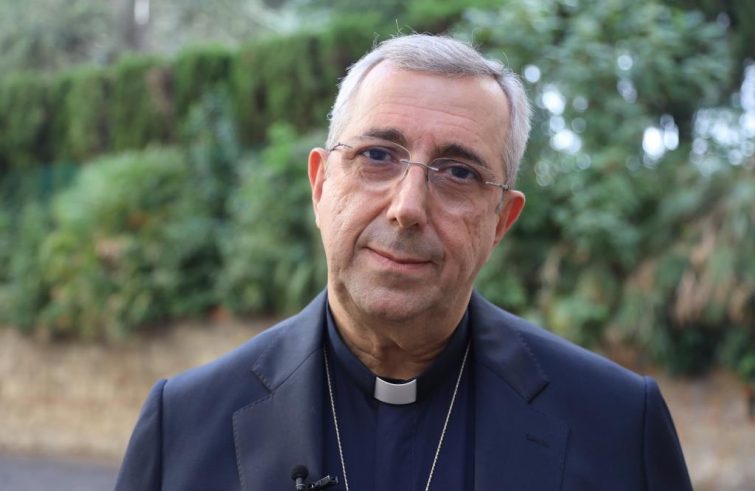
(from Marseille) “Marseille will offer a hope-filled arena in which a new step can be taken towards a human fraternity based on a culture of encounter and welcome, a fraternity that reminds mankind of the universal yearning for humaneness,” said Monsignor Giuseppe Satriano, Archbishop of Bari-Bitonto, speaking at the first session of the Mediterranean Meetings at the Palais du Pharo in Marseilles- the fourth day of the Meeting of 70 young people – together with four other bishops representing the five shores of the Mediterranean, to give an overview of their respective countries. “In their eyes I read hope, but also a determination to confront a culture of indifference that inevitably leads to fear of others,” the Archbishop declared.
The meeting in Marseilles is the third of its kind involving the Bishops of the Mediterranean countries. Our thoughts go back to Bari, where it all began on the initiative of the Italian Bishops’ Conference. How would you describe the atmosphere among the Bishops of the Mediterranean today, almost four years after that event?
Fraternal and concrete, full of hope. Coming together in a dialogue that involves the entire Mediterranean region is an opportunity of grace for our people, for humanity. Bari, defined by Pope Francis in the name of Saint Nicholas as “the capital of Church unity”, was the venue of the first meeting that I dare to call prophetic.
To see the Bishops of the Churches of the Mediterranean region – and not only – gathered together for the first time was a clear encouragement to work together for peace and harmony in this “strategic area whose stability affects other parts of the world”.
Even here in Marseille, to speak of the Mediterranean is to speak of peoples, of sustainable development, of a “vision” that extends beyond the horizon, that nourishes experiences and directs them towards a conviviality of differences, as a man from the South, the prophetic Bishop Don Tonino Bello, used to say.
“War is genuine madness,” said Pope Francis in Bari, inviting us to “work tirelessly as peacemakers.” What have these words left in their wake, and what are the inspirations for continuing the journey here in Marseille, in the aftermath of a pandemic and in the midst of a war that continues to spill blood in Europe?
The Pope is guiding us with his untiring determination. Marseille will be an arena full of hope in which a new step can be taken towards a human fraternity based on a culture of encounter and welcome, a fraternity that will remind humankind of the universal yearning for humaneness.”
This is the first time that Bishops and young people have met. What are their priorities and the “challenges” to which we must respond?
The first has to do with the Mediterranean, but it is not the first in absolute terms. Marseille has attached great importance to this aspect. I think it is a timely decision. As the Pope says in Christus Vivit, young people are “the now of God”, in other words, they carry with them God’s dream, a dream full of courage and love, capable of opening up new paths. I met a small group in Bari, on this journey along some of the shores of the Mare Nostrum, which they described as the “pilgrimage of the Mediterranean.”
In their eyes I read hope and the determination to stand up to a culture of indifference that inevitably leads to the fear of others. It’s a powerful image of hope for the future of all.
At the end of the Angelus prayer last Sunday, the Pope spoke of the phenomenon of migration as a challenge that “must be faced together”. How can we promote concepts of welcome, cooperation and inclusion among the countries of the Mediterranean?
In recent days, I have been reminded of a statement made by Abbé Pierre: “We must love open doors, because they are places where no one stops, where one passes, where one departs from, where all encounters take place.” Learning to inhabit empty spaces, unencumbered by the hypertrophy of the ego, humble and not overbearing environments, is the way forward that will help us develop sound reception policies and, above all, a culture that reflects the humanism that emanates from the Mediterranean.











